Here are my favorite poems about wolves categorized:
- Short poems about wolves
- Poems about wolves by famous poets
- Poems about wolves that rhyme
So if you want the best poems about wolves, then you’re in the right place.
Let’s get started!
- 21 Elating Poems About Swallows
- 35 Gleeful Poems About Rabbits
- 39 Untamed Poems About Lions
- 21 Heart-Fluttering Poems About Butterflies
- 53 Free-Spirited Poems About Horses
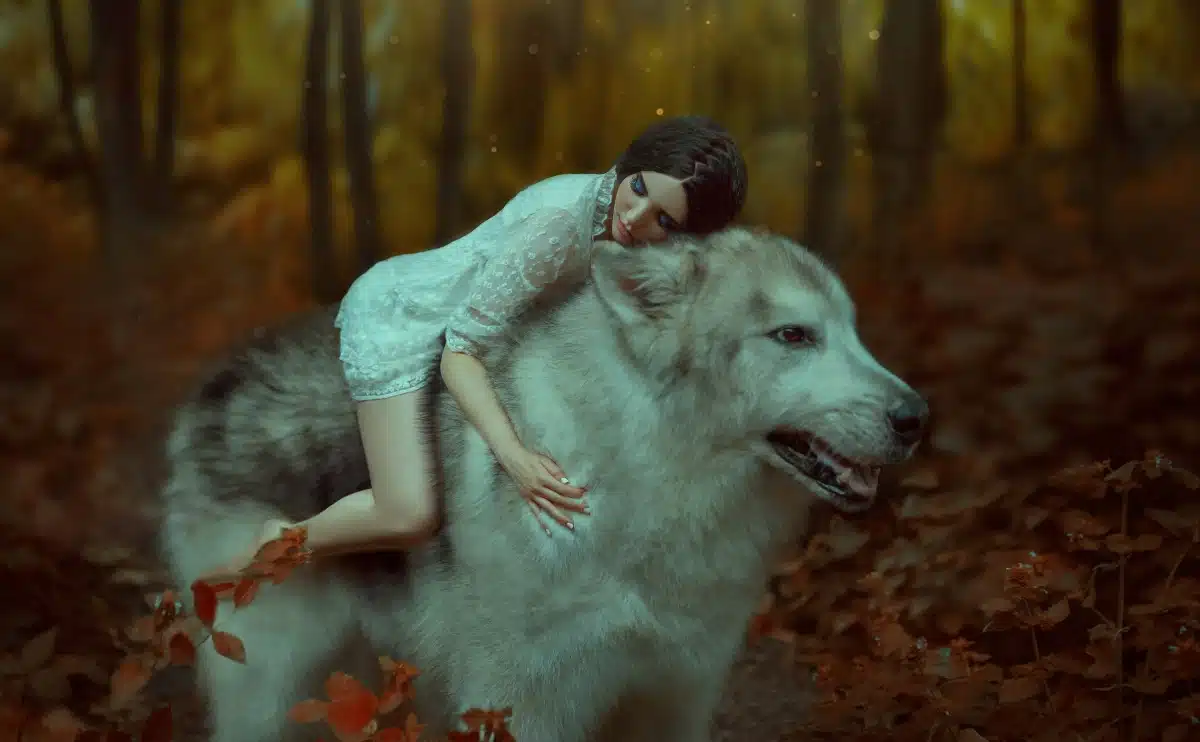
Unflinching Poems About Wolves
Embark on a captivating journey through a curated selection of profoundly evocative poems about wolves, thoughtfully categorized for your immersive exploration.
Our collection showcases works that delve into the enigmatic nature of wolves, exploring their strength, wisdom, and the untamed spirit that echoes within our souls.
With our handpicked assortment, you can discover the finest poems about wolves, all gathered conveniently in one place.
Take a moment to immerse yourself in the poetic verses that celebrate the mystique, grace, and primal allure of these majestic creatures, inviting you to connect with the wild essence that resides both in the heart of the wolf and within ourselves.
Let’s get started!
My #1 Favorite Poem About Wolves

“The Wolves of the Sea” by Herbert Bashford
From dusk until dawn they are hurrying on,
Unfetterd and fearless they flee;
From morn until eve they plunder and thieve—
The hungry, white wolves of the Sea!
With never a rest, they race to the west,
To the Orient’s rim do they run;
By the berg and the floe of the northland they go
And away to the isles of the sun.
They wail at the moon from the desolate dune
Till the air has grown dank with their breath;
They snarl at the stars from the treacherous bars
Of the coasts that are haunted by Death.
They grapple and bite in a keen, mad delight
As they feed on the bosom of Grief;
And one steals away to a cave with his prey,
And one to the rocks of the reef.
With the froth on their lips they follow the ships,
Each striving to lead in the chase;
Since loosed by the hand of the King of their band
They have known but the rush of the race.
They are shaggy and old, yet as mighty and bold
As when God’s freshest gale set them free;
Not a sail is unfurled in a port of the world
But is prey for the wolves of the Sea!
Short Poems About Wolves
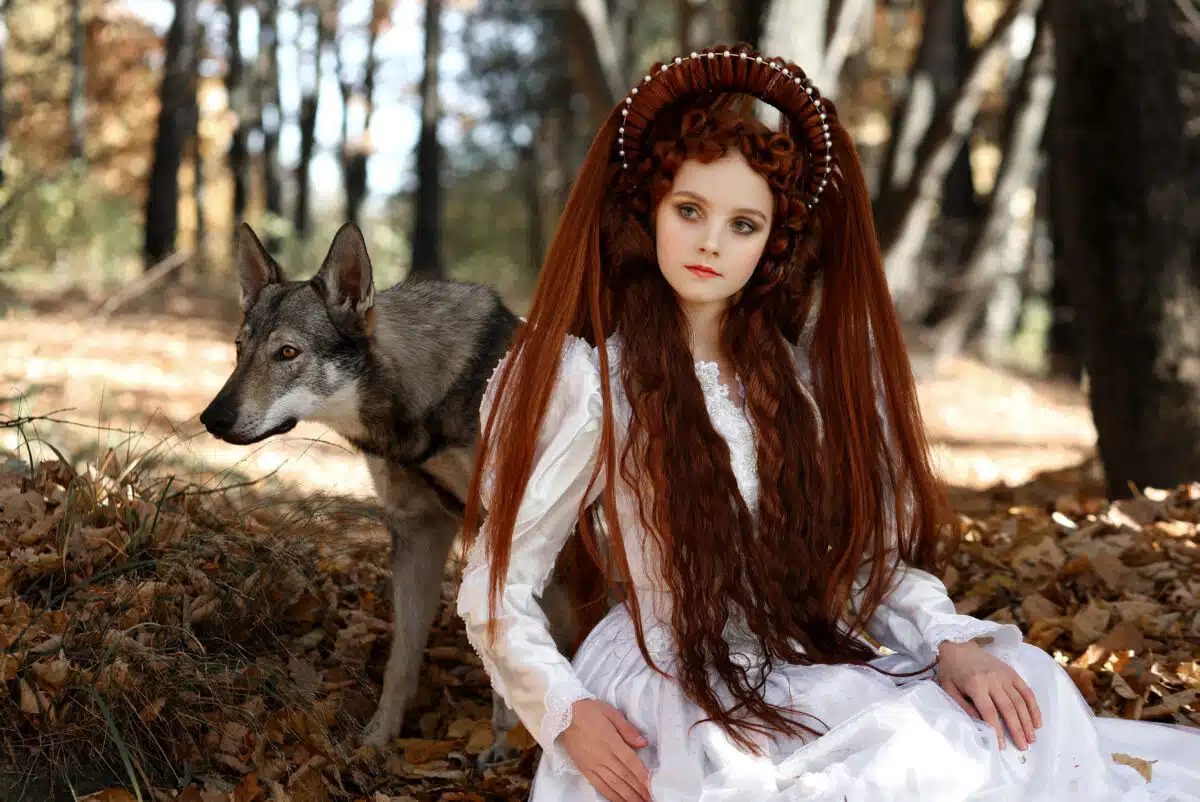
“The Grey Wolf” by Walter De La Mare
‘A fagot, a fagot, go fetch for the fire, son!’
‘O, Mother, the wolf looks in at the door!’
‘Cry Shoo! now, cry Shoo! thou fierce grey wolf fly, now;
Haste thee away, he will fright thee no more.’
‘I ran, O, I ran, but the grey wolf ran faster,
O, Mother, I cry in the air at thy door,
Cry Shoo! now, cry Shoo! but his fangs were so cruel,
Thy son (save his hatchet) thou’lt never see more.’
“The Wolf And The Lamb” by Walter Crane
A wolf, wanting lamb for his dinner,
Growled out–“Lamb you wronged me, you sinner.”
Bleated Lamb–“Nay, not true!”
Answered Wolf–“Then ’twas Ewe–
Ewe or lamb, you will serve for my dinner.”
Fraud And Violence Have No Scruples
“At the Zoo” by William Makepeace Thackeray
First I saw the white bear, then I saw the black;
Then I saw the camel with a hump upon his back;
Then I saw the grey wolf, with mutton in his maw;
Then I saw the wombat waddle in the straw;
Then I saw the elephant a-waving of his trunk;
Then I saw the monkeys—mercy, how unpleasantly they smelt!
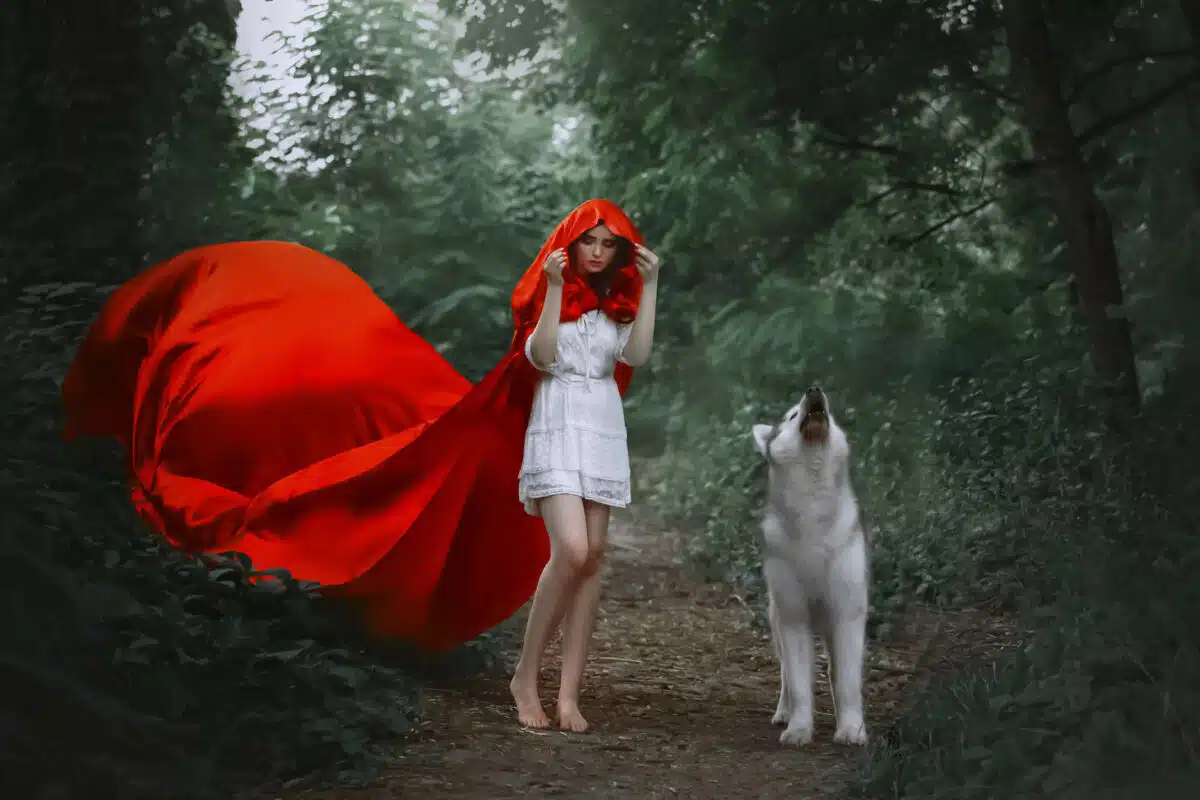
“IT RAINS TONIGHT” by Arch Alfred McKillen
It rains tonight and wolf-winds howl.
His grave is not so deep,
But that the mournful Heavens
Upon his body weep;
They wet the mound of spaded earth
And through his coffin seep.
It rains tonight and wolf-winds howl,
And beaten hangs the tree,
And comfortless in Death he lies
Who comforted should be,
The guy who lost
And killed himself,
And never spoke to me!
“NAPOLEON THE LITTLE.” by Victor Hugo
(“Ah! tu finiras bien par hurler!”)
{Bk. III. ii., Jersey, August, 1852.}
How well I knew this stealthy wolf would howl,
When in the eagle talons ta’en in air!
Aglow, I snatched thee from thy prey—thou fowl—
I held thee, abject conqueror, just where
All see the stigma of a fitting name
As deeply red as deeply black thy shame!
And though thy matchless impudence may frame
Some mask of seeming courage—spite thy sneer,
And thou assurest sloth and skunk: “It does not smart!”
Thou feel’st it burning, in and in,—and fear
None will forget it till shall fall the deadly dart!
Poems About Wolves by Famous Poets
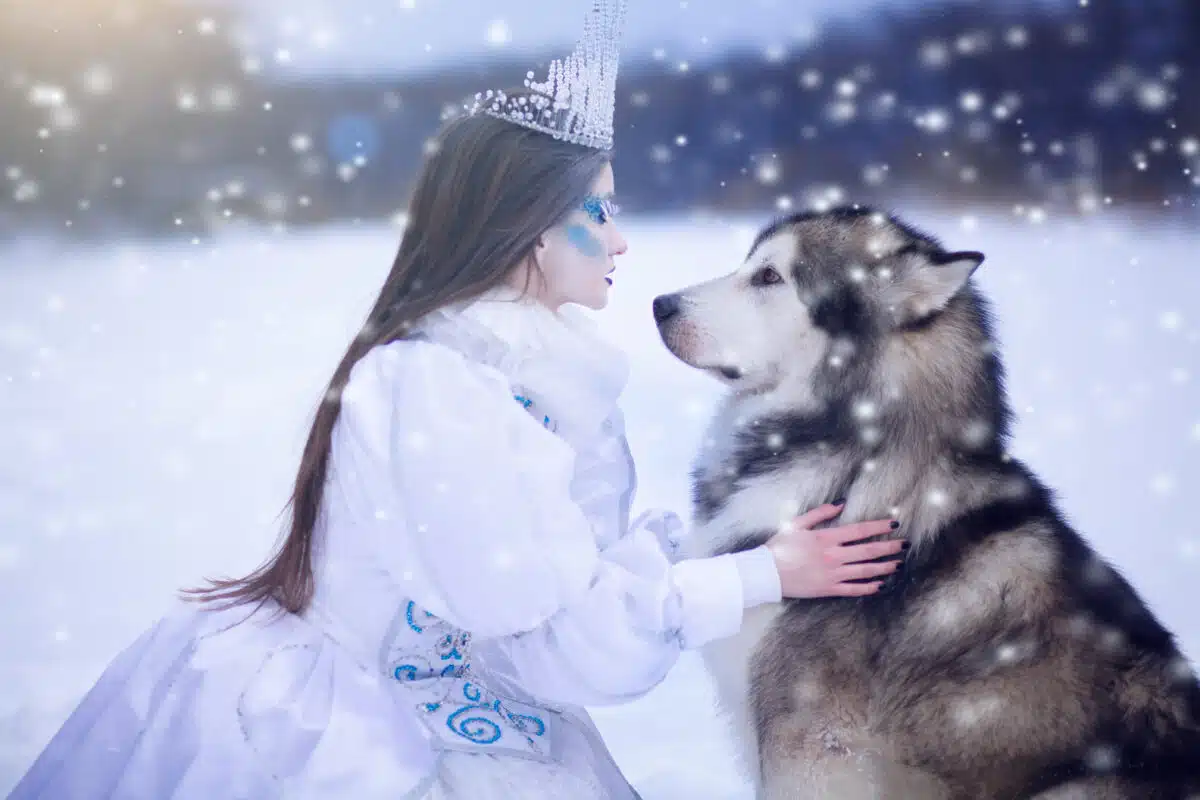
“Soul’s Desire” by Edgar Lee Masters
Her soul is like a wolf that stands
Where sunlight falls between the trees
Of a sparse forest’s leafless edge,
When Spring’s first magic moveth these.
Her soul is like a little brook,
Thin edged with ice against the leaves,
Where the wolf drinks and is alone,
And where the woodbine interweaves.
A bank late covered by the snow,
But lighted by the frozen North;
Her soul is like a little plot
That one white blossom bringeth forth.
Her soul is slim, like silver slips,
And straight, like flags beside a stream.
Her soul is like a shape that moves
And changes in a wonder dream.
Who would pursue her clasps a cloud,
And taketh sorrow for his zeal.
Memory shall sing him many songs
While bound upon the torture wheel.
Her soul is like a wolf that glides
By moonlight o’er a phantom ridge;
Her face is like a light that runs
Beneath the shadow of a bridge.
Her voice is like a woodland cry
Heard in a summer’s desolate hour.
Her eyes are dim; her lips are faint,
And tinctured like the cuckoo flower.
Her little breasts are like the buds
Of tulips in a place forlorn.
Her soul is like a mandrake bloom
Standing against the crimson moon.
Her dream is like the fenny snake’s,
That warms him in the noonday’s fire.
She hath no thought, nor any hope,
Save of herself and her desire.
She is not life; she is not death;
She is not fear, or joy or grief.
Her soul is like a quiet sea
Beneath a ruin-haunted reef.
She is the shape the sailor sees,
That slips the rock without a sound.
She is the soul that comes and goes
And leaves no mark, yet makes a wound.
She is the soul that hunts and flies;
She is a world-wide mist of care.
She is the restlessness of life,
Its rapture and despair.
“The Wolf and the Fox.” by Jean de La Fontaine
“Dear wolf,” complain’d a hungry fox,
“A lean chick’s meat, or veteran cock’s,
Is all I get by toil or trick:
Of such a living I am sick.
With far less risk, you’ve better cheer;
A house you need not venture near,
But I must do it, spite of fear.
Pray, make me master of your trade.
And let me by that means be made
The first of all my race that took
Fat mutton to his larder’s hook:
Your kindness shall not be repented.”
The wolf quite readily consented.
“I have a brother, lately dead:
Go fit his skin to yours,” he said.
‘Twas done; and then the wolf proceeded:
“Now mark you well what must be done,
The dogs that guard the flock to shun.”
The fox the lessons strictly heeded.
At first he boggled in his dress;
But awkwardness grew less and less,
Till perseverance gave success.
His education scarce complete,
A flock, his scholarship to greet,
Came rambling out that way.
The new-made wolf his work began,
Amidst the heedless nibblers ran,
And spread a sore dismay.
The bleating host now surely thought
That fifty wolves were on the spot:
Dog, shepherd, sheep, all homeward fled,
And left a single sheep in pawn,
Which Renard seized when they were gone.
But, ere upon his prize he fed,
There crow’d a cock near by, and down
The scholar threw his prey and gown,
That he might run that way the faster –
Forgetting lessons, prize and master.
Reality, in every station,
Will burst out on the first occasion.
“The Inhuman Wolf And The Lamb Sans Gene” by Guy Wetmore Carryl
A gaunt and relentless wolf, possessed
Of a quite insatiable thirst,
Once paused at a stream to drink and rest,
And found that, bound on a similar quest,
A lamb had arrived there first.
The lamb was a lamb of a garrulous mind
And frivolity most extreme:
In the fashion common to all his kind,
He cantered in front and galloped behind.
And troubled the limpid stream.
“My friend,” said the wolf, with a winsome air,
“Your capers I can’t admire.”
“Go to!” quoth the lamb. (Though he said not where,
He showed what he meant by his brazen stare
And the way that he gambolled higher.)
“My capers,” he cried, “are the kind that are
Invariably served with lamb.
Remember, this is a public bar,
And I’ll do as I please. If your drink I mar,
I don’t give a tinker’s —-.”
He paused and glanced at the rivulet,
And that pause than speech was worse,
For his roving eye a saw-mill met,
And, near it, the word which should be set
At the end of the previous verse.
Said the wolf: “You are tough and may bring remorse,
But of such is the world well rid.
I’ve swallowed your capers, I’ve swallowed your sauce,
And it’s plain to be seen that my only course
Is swallowing you.” He did.
THE MORAL: The wisest lambs they are
Who, when they’re assailed by thirst,
Keep well away from a public bar;
For of all black sheep, or near, or far,
The public bar-lamb’s worst!
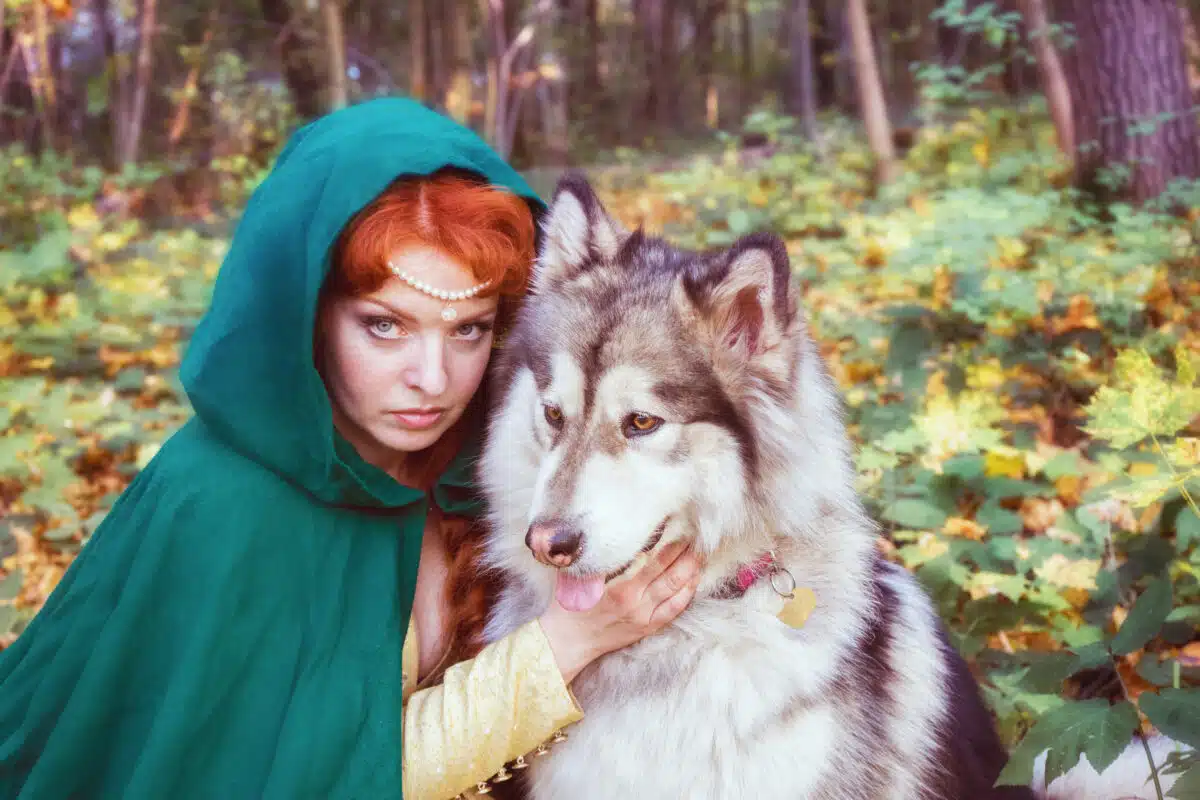
“The Were-Wolf” by Madison Julius Cawein
SHE.
Nay; still amort, my love? Why dost thou lag?
HE.
The strix-owl cried.
SHE.
Nay! yon wild stream that leaps
Hoarse from the black pines of the Hakel steeps,
A moon-tipped water, down a glittering crag. –
Why so aghast, sweetheart? Why dost thou stop?
HE.
The demon-huntsman passed with hooting horn!
SHE.
Nay! ‘t was the blind wind sweeping through the thorn
Around the ruins of the Dumburg’s top.
HE.
My limbs are cold.
SHE.
Come! warm thee in mine arms.
HE.
Mine eyes are weary.
SHE.
Rest them, love, on mine.
HE.
I am athirst.
SHE.
Quench on my lips thy thirst. –
O dear belov’d, how thy last kiss warms
My blood again!
HE.
Off!… How thy eyeballs shine!
Thy face!… thy form!… So do I die accursed!
“The Horse and the Wolf.” by Jean de La Fontaine
A wolf who, fall’n on needy days,
In sharp look-out for means and ways,
Espied a horse turn’d out to graze.
His joy the reader may opine.
“Once got,” said he, “this game were fine;
But if a sheep, ’twere sooner mine.
I can’t proceed my usual way;
Some trick must now be put in play.”
This said,
He came with measured tread,
And told the horse, with learned verbs,
He knew the power of roots and herbs, –
Whatever grew about those borders, –
He soon could cure of all disorders.
If he, Sir Horse, would not conceal
The symptoms of his case,
He, Doctor Wolf, would gratis heal;
For that to feed in such a place,
And run about untied,
Was proof itself of some disease,
As all the books decide.
“I have, good Doctor, if you please,”
Replied the horse, “as I presume,
Beneath my foot, an aposthume.”
“My son,” replied the learned leech,
“That part, as all our authors teach,
Is strikingly susceptible
Of ills which make acceptable
What you may also have from me –
The aid of skilful surgery.”
The fellow, with this talk sublime,
Watch’d for a snap the fitting time.
Meanwhile, suspicious of some trick,
The weary patient nearer draws,
And gives his doctor such a kick,
As makes a chowder of his jaws.
Exclaim’d the Wolf, in sorry plight,
“I own those heels have served me right.
I err’d to quit my trade, as I will not in future;
Me Nature surely made for nothing but a butcher.”
“The Wolf Accusing The Fox Before The Monkey.” by Jean de La Fontaine
A wolf, affirming his belief
That he had suffer’d by a thief,
Brought up his neighbour fox –
Of whom it was by all confess’d,
His character was not the best –
To fill the prisoner’s box.
As judge between these vermin,
A monkey graced the ermine;
And truly other gifts of Themis
Did scarcely seem his;
For while each party plead his cause,
Appealing boldly to the laws,
And much the question vex’d,
Our monkey sat perplex’d.
Their words and wrath expended,
Their strife at length was ended;
When, by their malice taught,
The judge this judgment brought:
‘Your characters, my friends, I long have known,
As on this trial clearly shown;
And hence I fine you both – the grounds at large
To state would little profit –
You wolf, in short, as bringing groundless charge,
You fox, as guilty of it.’
Come at it right or wrong, the judge opined
No other than a villain could be fined.
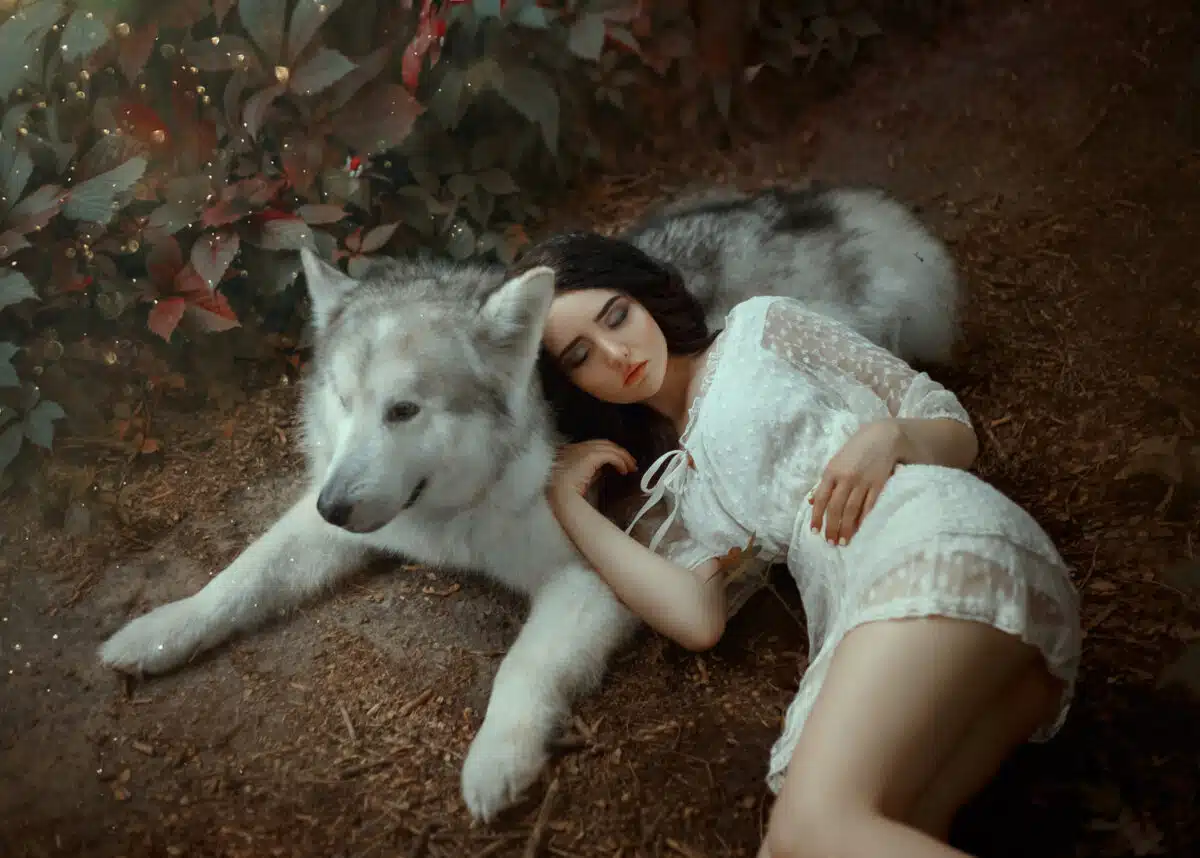
“An Ode to Himself” by Ben Jonson
Where dost thou careless lie
Buried in ease and sloth?
Knowledge that sleeps, doth die
And this security,
It is the common moth
That eats on wits and arts, and that destroys them both.
Are all the Aonian springs
Dried up? lies Thespia waste?
Doth Clarius’ harp want strings,
That not a nymph now sings;
Or droop they as disgraced,
To see their seats and bowers by chattering pies defaced?
If hence thy silence be,
As ’tis too just a cause,
Let this thought quicken thee:
Minds that are great and free
Should not on fortune pause;
‘Tis crown enough to virtue still, her own applause.
What though the greedy fry
Be taken with false baits
Of worded balladry,
And think it poesy?
They die with their conceits,
And only piteous scorn upon their folly waits.
Then take in hand thy lyre;
Strike in thy proper strain;
With Japhet’s line aspire
Sol’s chariot, for new fire
To give the world again:
Who aided him, will thee, the issue of Jove’s brain.
And, since our dainty age
Cannot endure reproof,
Make not thyself a page
To that strumpet the stage;
But sing high and aloof,
Safe from the wolf’s black jaw, and the dull ass’s hoof.
“The Fox, The Wolf, And The Horse.” by Jean de La Fontaine
A fox, though young, by no means raw,
Had seen a horse, the first he ever saw:
‘Ho! neighbour wolf,’ said he to one quite green,
‘A creature in our meadow I have seen, –
Sleek, grand! I seem to see him yet, –
The finest beast I ever met.’
‘Is he a stouter one than we?’
The wolf demanded, eagerly;
‘Some picture of him let me see.’
‘If I could paint,’ said fox, ‘I should delight
T’ anticipate your pleasure at the sight;
But come; who knows? perhaps it is a prey
By fortune offer’d in our way.’
They went. The horse, turn’d loose to graze,
Not liking much their looks or ways,
Was just about to gallop off.
‘Sir,’ said the fox, ‘your humble servants, we
Make bold to ask you what your name may be.’
The horse, an animal with brains enough,
Replied, ‘Sirs, you yourselves may read my name;
My shoer round my heel hath writ the same.’
The fox excus’d himself for want of knowledge:
‘Me, sir, my parents did not educate, –
So poor, a hole was their entire estate.
My friend, the wolf, however, taught at college,
Could read it were it even Greek.’
The wolf, to flattery weak,
Approach’d to verify the boast;
For which four teeth he lost.
The high raised hoof came down with such a blow,
As laid him bleeding on the ground full low.
‘My brother,’ said the fox, ‘this shows how just
What once was taught me by a fox of wit, –
Which on thy jaws this animal hath writ, –
“All unknown things the wise mistrust.”‘
“The Wolf And The Lean Dog.” by Jean de La Fontaine
A troutling, some time since,
Endeavour’d vainly to convince
A hungry fisherman
Of his unfitness for the frying-pan.
That controversy made it plain
That letting go a good secure,
In hope of future gain,
Is but imprudence pure.
The fisherman had reason good –
The troutling did the best he could –
Both argued for their lives.
Now, if my present purpose thrives,
I’ll prop my former proposition
By building on a small addition.
A certain wolf, in point of wit
The prudent fisher’s opposite,
A dog once finding far astray,
Prepared to take him as his prey.
The dog his leanness pled;
‘Your lordship, sure,’ he said,
‘Cannot be very eager
To eat a dog so meagre.
To wait a little do not grudge:
The wedding of my master’s only daughter
Will cause of fatted calves and fowls a slaughter;
And then, as you yourself can judge,
I cannot help becoming fatter.’
The wolf, believing, waived the matter,
And so, some days therefrom,
Return’d with sole design to see
If fat enough his dog might be.
The rogue was now at home:
He saw the hunter through the fence.
‘My friend,’ said he, ‘please wait;
I’ll be with you a moment hence,
And fetch our porter of the gate.’
This porter was a dog immense,
That left to wolves no future tense.
Suspicion gave our wolf a jog, –
It might not be so safely tamper’d.
‘My service to your porter dog,’
Was his reply, as off he scamper’d.
His legs proved better than his head,
And saved him life to learn his trade.
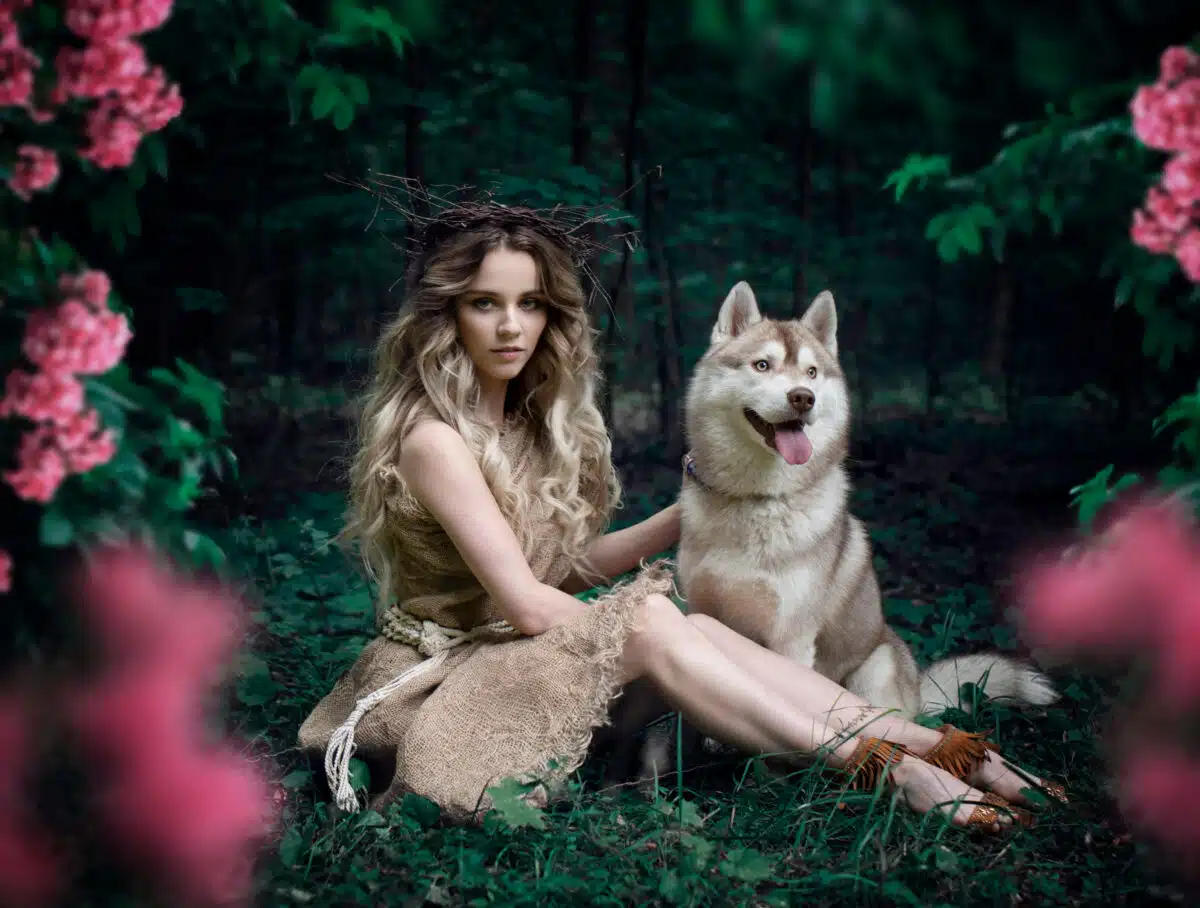
“The Law for the Wolves” by Rudyard Kipling
Now this is the law of the jungle, as old and as true as the sky,
And the wolf that shall keep it may prosper, but the wolf that shall break it must die.
As the creeper that girdles the tree trunk, the law runneth forward and back;
For the strength of the pack is the wolf, and the strength of the wolf is the pack.
Wash daily from nose tip to tail tip; drink deeply, but never too deep;
And remember the night is for hunting and forget not the day is for sleep.
The jackal may follow the tiger, but, cub, when thy whiskers are grown,
Remember the wolf is a hunter—go forth and get food of thy own.
Keep peace with the lords of the jungle, the tiger, the panther, the bear;
And trouble not Hathi the Silent, and mock not the boar in his lair.
When pack meets with pack in the jungle, and neither will go from the trail,
Lie down till the leaders have spoken; it may be fair words shall prevail.
When ye fight with a wolf of the pack ye must fight him alone and afar,
Lest others take part in the quarrel and the pack is diminished by war.
The lair of the wolf is his refuge, and where he has made him his home,
Not even the head wolf may enter, not even the council may come.
The lair of the wolf is his refuge, but where he has digged it too plain,
The council shall send him a message, and so he shall change it again.
If ye kill before midnight be silent and wake not the woods with your bay,
Lest ye frighten the deer from the crop and thy brothers go empty away.
Ye may kill for yourselves, and your mates, and your cubs as they need and ye can;
But kill not for pleasure of killing, and seven times never kill man.
If ye plunder his kill from a weaker, devour not all in thy pride,
Pack-right is the right of the meanest; so leave him the head and the hide.
The kill of the pack is the meat of the pack. Ye must eat where it lies;
And no one may carry away of that meat to his lair, or he dies.
The kill of the wolf is the meat of the wolf. He may do what he will,
But, till he is given permission, the pack may not eat of that kill.
Lair right is the right of the mother. From all of her years she may claim
One haunch of each kill for her litter, and none may deny her the same.
Cub right is the right of the yearling. From all of his pack he may claim
Full gorge when the killer has eaten; and none may refuse him the same.
Cave right is the right of the father, to hunt by himself for his own;
He is freed from all calls to the pack. He is judged by the council alone.
Because of his age and his cunning, because of his gripe and his paw,
In all that the law leaveth open the word of the head wolf is law.
Now these are the laws of the jungle, and many and mighty are they;
But the head and the hoof of the law and the haunch and the hump is—Obey!
“The Were-Wolves” by William Wilfred Campbell
They hasten, still they hasten,
From the even to the dawn;
And their tired eyes gleam and glisten
Under north skies white and wan.
Each panter in the darkness
Is a demon-haunted soul,
The shadowy, phantom were-wolves,
Who circle round the Pole.
Their tongues are crimson flaming,
Their haunted blue eyes gleam,
And they strain them to the utmost
O’er frozen lake and stream;
Their cry one note of agony,
That is neither yelp nor bark,
These panters of the northern waste,
Who hound them to the dark.
You may hear their hurried breathing,
You may see their fleeting forms,
At the pallid polar midnight
When the north is gathering storms;
When the arctic frosts are flaming,
And the ice-field thunders roll;
These demon-haunted were-wolves,
Who circle round the Pole.
They hasten, still they hasten,
Across the northern night,
Filled with a frighted madness,
A horror of the light;
Forever and forever,
Like leaves before the wind,
They leave the wan, white gleaming
Of the dawning far behind.
Their only peace is darkness,
Their rest to hasten on
Into the heart of midnight,
Forever from the dawn.
Across far phantom ice-floes
The eye of night may mark
These horror-haunted were-wolves
Who hound them to the dark.
All through this hideous journey,
They are the souls of men
Who in the far dark-ages
Made Europe one black fen.
They fled from courts and convents,
And bound their mortal dust
With demon wolfish girdles
Of human hate and lust.
These who could have been god-like,
Chose, each a loathsome beast,
Amid the heart’s foul graveyards,
On putrid thoughts to feast;
But the great God who made them
Gave each a human soul,
And so ’mid night forever
They circle round the Pole;
A praying for the blackness,
A longing for the night,
For each is doomed forever
By a horror of the light;
And far in the heart of midnight,
Where their shadowy flight is hurled,
They feel with pain the dawning
That creeps in round the world.
Under the northern midnight,
The white, glint ice upon,
They hasten, still they hasten,
With their horror of the dawn;
Forever and forever,
Into the night away
They hasten, still they hasten
Unto the judgment day.
“The Clans” by Richard Calmit Adams
When the waters were so mighty
As to reach the mountains high,
And it seemed that all creation
Surely then was doomed to die,
Came the turtle to our rescue,
Brought us safely unto land,
For the Manitou had sent him;
Now we’re called “The Turtle Clan.”
The Wolf band comes from children,
Whom a she-wolf nursed with care,
And thus restored the children
Who were giv’n up in despair.
Her wailing brought the hunters
To the babies where they lay;
So a band among the people
Is the Wolf Clan of to-day.
When the tribe was once in danger,
A wild turkey gave alarm,
And the warriors met the foeman
With the fury of a storm,
To a maiden, in a vision,
Did the turkey show the plan,
And we call all her descendants
To this day, the “Turkey Clan.”
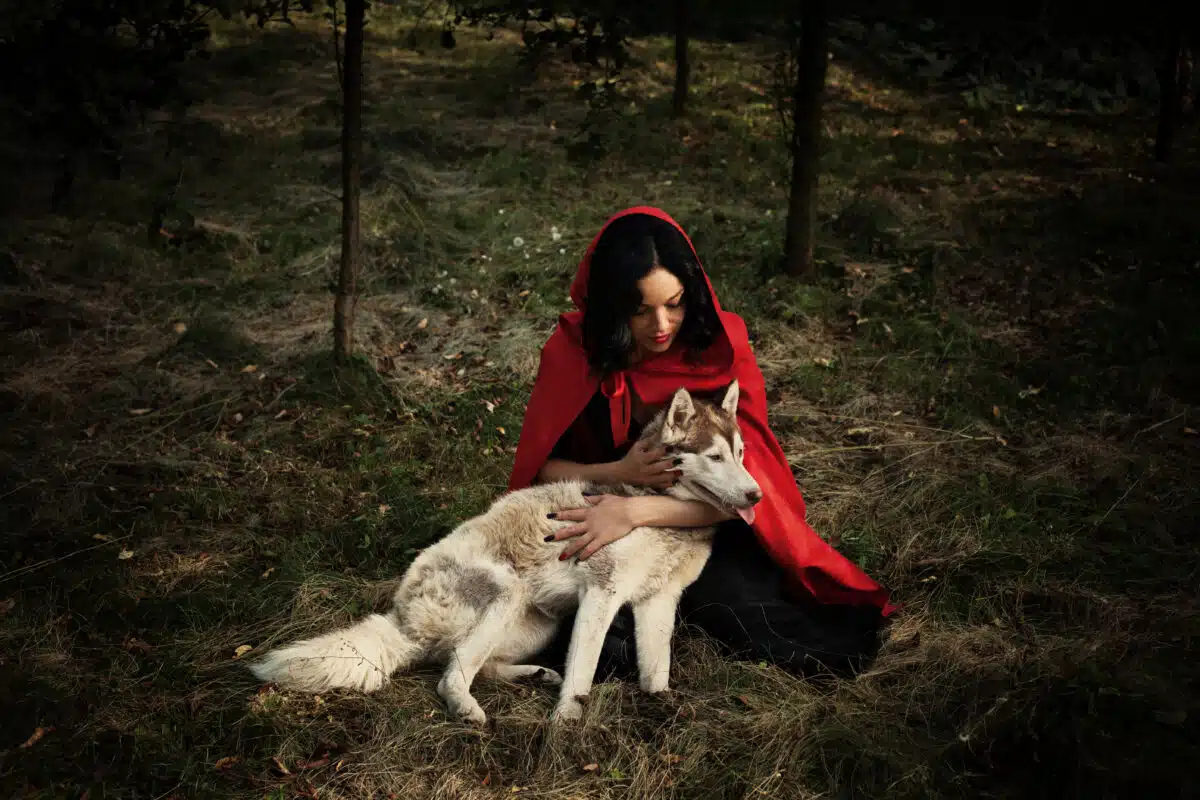
“Wilderness” by Carl Sandburg
There is a wolf in me … fangs pointed for tearing gashes … a red tongue for raw meat … and the hot lapping of blood—I keep this wolf because the wilderness gave it to me and the wilderness will not let it go.
There is a fox in me … a silver-gray fox … I sniff and guess … I pick things out of the wind and air … I nose in the dark night and take sleepers and eat them and hide the feathers … I circle and loop and double-cross.
There is a hog in me … a snout and a belly … a machinery for eating and grunting … a machinery for sleeping satisfied in the sun—I got this too from the wilderness and the wilderness will not let it go.
There is a fish in me … I know I came from saltblue water-gates … I scurried with shoals of herring … I blew waterspouts with porpoises … before land was … before the water went down … before Noah … before the first chapter of Genesis.
There is a baboon in me … clambering-clawed … dog-faced … yawping a galoot’s hunger … hairy under the armpits … here are the hawk-eyed hankering men … here are the blond and blue-eyed women … here they hide curled asleep waiting … ready to snarl and kill … ready to sing and give milk … waiting—I keep the baboon because the wilderness says so.
There is an eagle in me and a mockingbird … and the eagle flies among the Rocky Mountains of my dreams and fights among the Sierra crags of what I want … and the mockingbird warbles in the early forenoon before the dew is gone, warbles in the underbrush of my Chattanoogas of hope, gushes over the blue Ozark foothills of my wishes—And I got the eagle and the mockingbird from the wilderness.
O, I got a zoo, I got a menagerie, inside my ribs, under my bony head, under my red-valve heart—and I got something else: it is a man-child heart, a woman-child heart: it is a father and mother and lover: it came from God-Knows-Where: it is going to God-Knows-Where—For I am the keeper of the zoo: I say yes and no: I sing and kill and work: I am a pal of the world: I came from the wilderness.
“The Supper” by Walter De La Mare
A wolf he pricks with eyes of fire
Across the night’s o’ercrusted snows,
Seeking his prey,
He pads his way
Where Jane benighted goes,
Where Jane benighted goes.
He curdles the bleak air with ire,
Ruffling his hoary raiment through,
And lo! he sees
Beneath the trees
Where Jane’s light footsteps go,
Where Jane’s light footsteps go.
No hound peals thus in wicked joy,
He snaps his muzzle in the snows,
His five-clawed feet
Do scamper fleet
Where Jane’s bright lanthorn shows,
Where Jane’s bright lanthorn shows.
Now his greed’s green doth gaze unseen
On a pure face of wilding rose,
Her amber eyes
In fear’s surprise
Watch largely as she goes,
Watch largely as she goes.
Salt wells his hunger in his jaws,
His lust it revels to and fro,
Yet small beneath
A soft voice saith,
‘Jane shall in safety go,
Jane shall in safety go.’
He lurched as if a fiery lash
Had scourged his hide, and through and through,
His furious eyes
O’erscanned the skies,
But nearer dared not go,
But nearer dared not go.
He reared like wild Bucephalus,
His fangs like spears in him uprose,
Ev’n to the town
Jane’s flitting gown
He grins on as she goes,
He grins on as she goes.
In fierce lament he howls amain,
He scampers, marvelling in his throes
What brought him there
To sup on air,
While Jane unarm’d goes,
While Jane unarm’d goes.
“The Wolf And The Fox (Prose Fable)” by Jean de La Fontaine
A fox once remarked to a wolf, “Dear friend, do you know that the utmost I can get for my meals is a tough old cock or perchance a lean hen or two. It is a diet of which I am thoroughly weary. You, on the other hand, feed much better than that, and with far less danger. My foraging takes me close up to houses; but you keep far away. I beg of you, comrade, to teach me your trade. Let me be the first of my race to furnish my pot with a plump sheep, and you will not find me ungrateful.”
“Very well,” replied the obliging wolf. “I have a brother recently dead, suppose you go and get his skin and wear it.” This the fox accordingly did and the wolf commenced to give him lessons. “You must do this and act so, when you wish to separate the dogs from the flocks.” At first Reynard was a little awkward, but he rapidly improved, and with a little practice he reached at last the perfection of wolfish strategy. Just as he had learned all that there was to know a flock approached. The sham wolf ran after it spreading terror all around, even as Patroclus wearing[1] the armour of Achilles spread alarm throughout camp and city, when mothers, wives, and old men hastened to the temples for protection. “In this case, the bleating army made sure there must be quite fifty wolves after them, and fled, dog and shepherd with them, to the neighbouring village, leaving only one sheep as a hostage.
This remaining sheep our thief instantly seized and was making off with it. But he had not gone more than a few steps when a cock crew near by. At this signal, which habit of life had led him to regard as a warning of dawn and danger, he dropped his disguising wolf-skin and, forgetting his sheep, his lesson, and his master, scampered off with a will.
Of what use is such shamming? It is an illusion to suppose that one is really changed by making the pretence. One resume’s one’s first nature upon the earliest occasion for hiding it.
Poems About Wolves That Rhyme
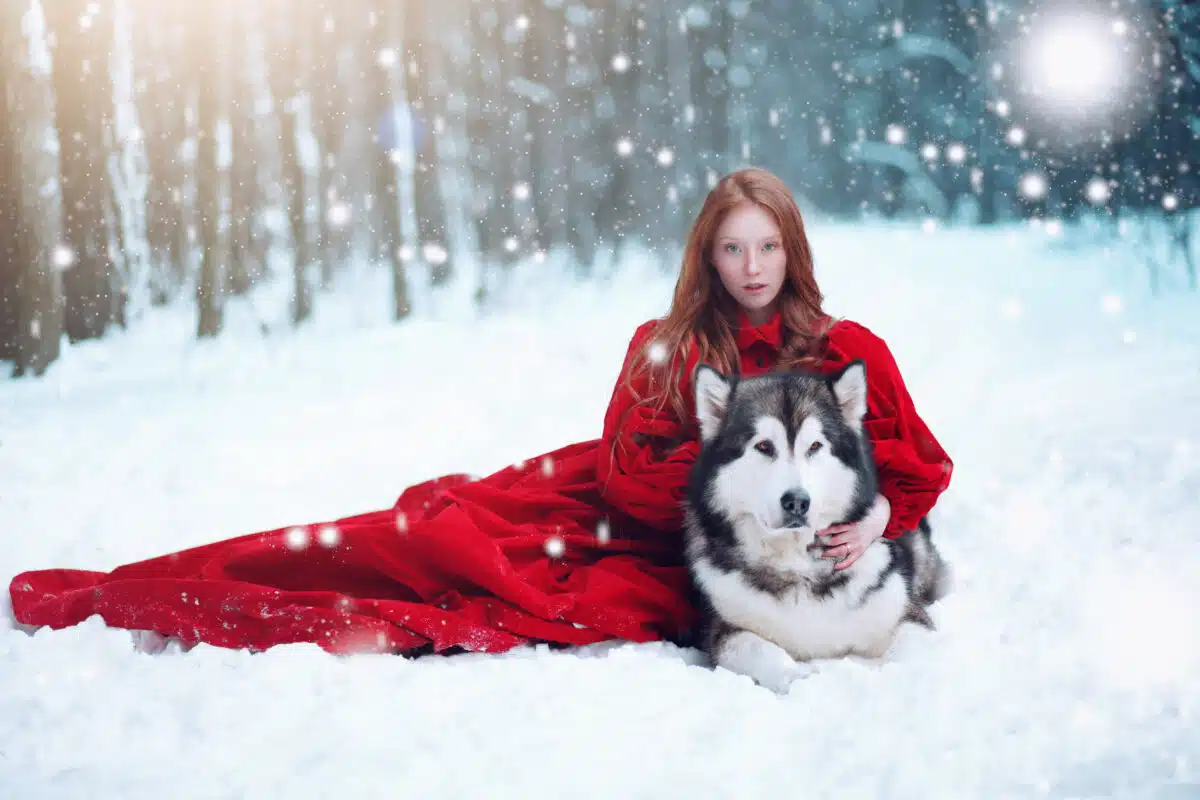
“The Wolf.” by Oliver Herford
Oh, yes, the Wolf is bad, it’s true;
But how with-out him could we do?
If there were not a wolf, what good
Would be the tale of RID-ING-HOOD?
The Lit-tle Child from sin will fly
When told the wick-ed Wolf is nigh;
And when, ar-rived at Man’s es-tate,
He hears the Wolf out-side his gate,
He knows it’s time to put a-way
I-dle fri-vol-i-ty and play.
That’s how (but do not men-tion it)
This prim-er hap-pened to be writ.
“Romulus and Remus” by Rudyard Kipling
Oh, little did the Wolf-Child care,
When first he planned his home,
What City should arise and bear
The weight and state of Rome.
A shiftless, westward-wandering tramp,
Checked by the Tiber flood,
He reared a wall around his camp
Of uninspired mud.
But when his brother leaped the Wall
And mocked its height and make,
He guessed the future of it all
And slew him for its sake.
Swift was the blow, swift as the thought
Which showed him in that hour
How unbelief may bring to naught
The early steps of Power.
Foreseeing Time’s imperilled hopes
Of Glory, Grace, and Love,
All singers, Caesars, artists, Popes,
Would fail if Remus throve,
He sent his brother to the Gods,
And, when the fit was o’er,
Went on collecting turves and clods
To build the Wall once more!
“Fight Of A Buffalo With Wolves.” by James McIntyre
A buffalo, lord of the plain,
With massive neck and mighty mane,
While from his herd he slowly strays,
He on green herbage calm doth graze,
And when at last he lifts his eyes
A savage wolf he soon espies,
But scarcely deigns to turn his head
For it inspires him with no dread,
He knows the wolf is treacherous foe
But feels he soon could lay him low,
A moment more and there’s a pair
Whose savage eyes do on him glare,
But with contempt them both he scorns
Unworthy of his powerful horns;
Their numbers soon do multiply
But the whole pack he doth defy,
He could bound quickly o’er the plain
And his own herd could soon regain;
His foes they now are full a score
With lolling tongues pant for his gore,
He hears their teeth all loudly gnash
So eager his big bones to crash,
On every side they him infest,
The north, the south, the east, the west
Fierce rage doth now gleam from his eye,
Resolved to conquer or to die,
‘Round him they yelp and howl and growl,
He glares on them with angry scowl,
They circle closer him around,
He roars and springs with mighty bound,
And of his powers gives ample proof,
Felling them with horn and hoof,
Though some lay dead upon the plain,
Yet their attack was not in vain,
For they have tasted of his blood,
Resolved it soon shall pour a flood,
He feels that they have torn his hide
And streams gush from each limb and side,
He rushes on them in despair
And tosses them full high in air,
But others rush on him and pull
Down to the earth that glorious bull;
On the flesh of this noble beast
Their bloody jaws they soon do feast,
Full worthy of a better fate
Far from his herd and his dear mate,
Who now do look for him in vain
His bones do whiten now the plain.
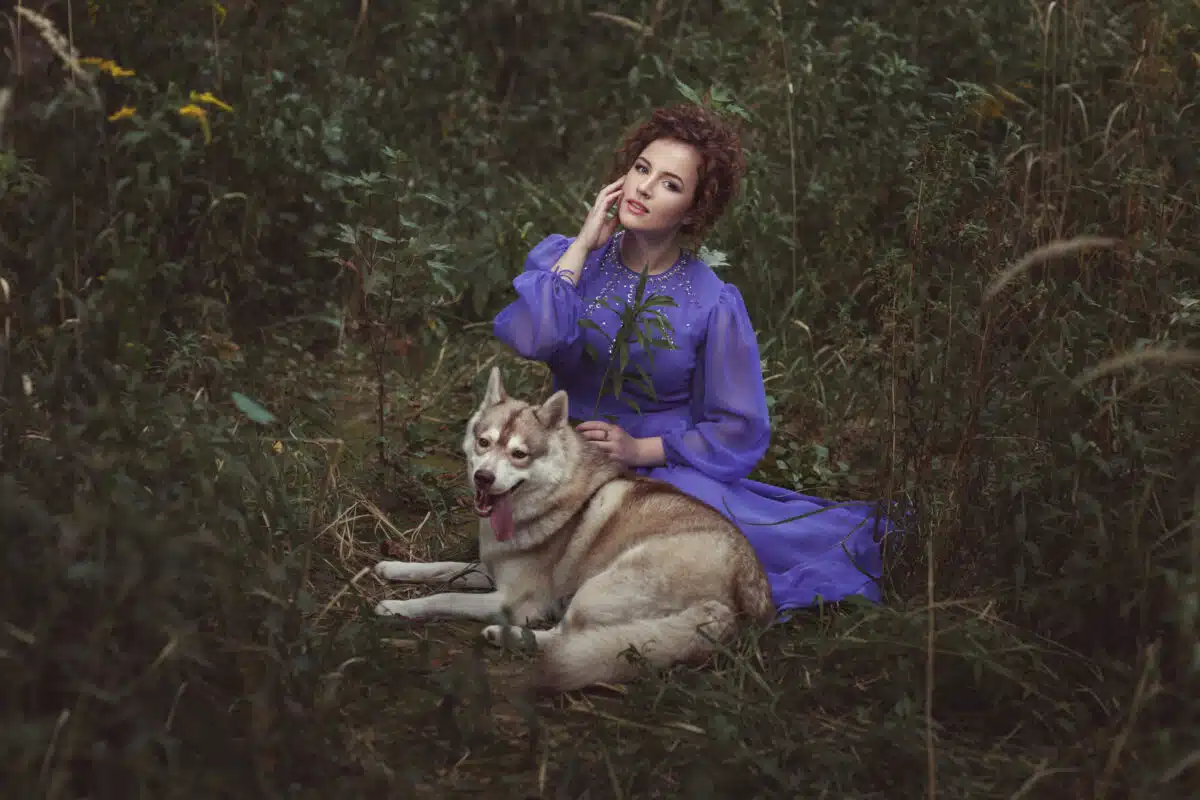
“The Wolf Turned Shepherd.” by Jean de La Fontaine
A wolf, whose gettings from the flocks
Began to be but few,
Bethought himself to play the fox
In character quite new.
A shepherd’s hat and coat he took,
A cudgel for a crook,
Nor e’en the pipe forgot:
And more to seem what he was not,
Himself upon his hat he wrote,
‘I’m Willie, shepherd of these sheep.’
His person thus complete,
His crook in upraised feet,
The impostor Willie stole upon the keep.
The real Willie, on the grass asleep,
Slept there, indeed, profoundly,
His dog and pipe slept, also soundly;
His drowsy sheep around lay.
As for the greatest number,
Much bless’d the hypocrite their slumber,
And hoped to drive away the flock,
Could he the shepherd’s voice but mock.
He thought undoubtedly he could.
He tried: the tone in which he spoke,
Loud echoing from the wood,
The plot and slumber broke;
Sheep, dog, and man awoke.
The wolf, in sorry plight,
In hampering coat bedight,
Could neither run nor fight.
There’s always leakage of deceit
Which makes it never safe to cheat.
Whoever is a wolf had better
Keep clear of hypocritic fetter.
“The Wolves And The Sheep.” by Jean de La Fontaine
By-gone a thousand years of war,
The wearers of the fleece
And wolves at last made peace;
Which both appear’d the better for;
For if the wolves had now and then
Eat up a straggling ewe or wether,
As often had the shepherd men
Turn’d wolf-skins into leather.
Fear always spoil’d the verdant herbage,
And so it did the bloody carnage.
Hence peace was sweet; and, lest it should be riven,
On both sides hostages were given.
The sheep, as by the terms arranged,
For pups of wolves their dogs exchanged;
Which being done above suspicion,
Confirm’d and seal’d by high commission,
What time the pups were fully grown,
And felt an appetite for prey,
And saw the sheepfold left alone,
The shepherds all away,
They seized the fattest lambs they could,
And, choking, dragg’d them to the wood;
Of which, by secret means apprised,
Their sires, as is surmised,
Fell on the hostage guardians of the sheep,
And slew them all asleep.
So quick the deed of perfidy was done,
There fled to tell the tale not one!
From which we may conclude
That peace with villains will be rued.
Peace in itself, ’tis true,
May be a good for you;
But ’tis an evil, nathless,
When enemies are faithless.
“The Horse And The Wolf.” by Jean de La Fontaine
A wolf, what time the thawing breeze
Renews the life of plants and trees,
And beasts go forth from winter lair
To seek abroad their various fare, –
A wolf, I say, about those days,
In sharp look-out for means and ways,
Espied a horse turn’d out to graze.
His joy the reader may opine.
‘Once got,’ said he, ‘this game were fine;
But if a sheep, ’twere sooner mine.
I can’t proceed my usual way;
Some trick must now be put in play.’
This said,
He came with measured tread,
As if a healer of disease, –
Some pupil of Hippocrates, –
And told the horse, with learned verbs,
He knew the power of roots and herbs, –
Whatever grew about those borders, –
And not at all to flatter
Himself in such a matter,
Could cure of all disorders.
If he, Sir Horse, would not conceal
The symptoms of his case,
He, Doctor Wolf, would gratis heal;
For that to feed in such a place,
And run about untied,
Was proof itself of some disease,
As all the books decide.
‘I have, good doctor, if you please,’
Replied the horse, ‘as I presume,
Beneath my foot, an aposthume.’
‘My son,’ replied the learned leech,
‘That part, as all our authors teach,
Is strikingly susceptible
Of ills which make acceptable
What you may also have from me –
The aid of skilful surgery;
Which noble art, the fact is,
For horses of the blood I practise.’
The fellow, with this talk sublime,
Watch’d for a snap the fitting time.
Meanwhile, suspicious of some trick,
The wary patient nearer draws,
And gives his doctor such a kick,
As makes a chowder of his jaws.
Exclaim’d the wolf, in sorry plight,
‘I own those heels have served me right.
I err’d to quit my trade,
As I will not in future;
Me nature surely made
For nothing but a butcher.’
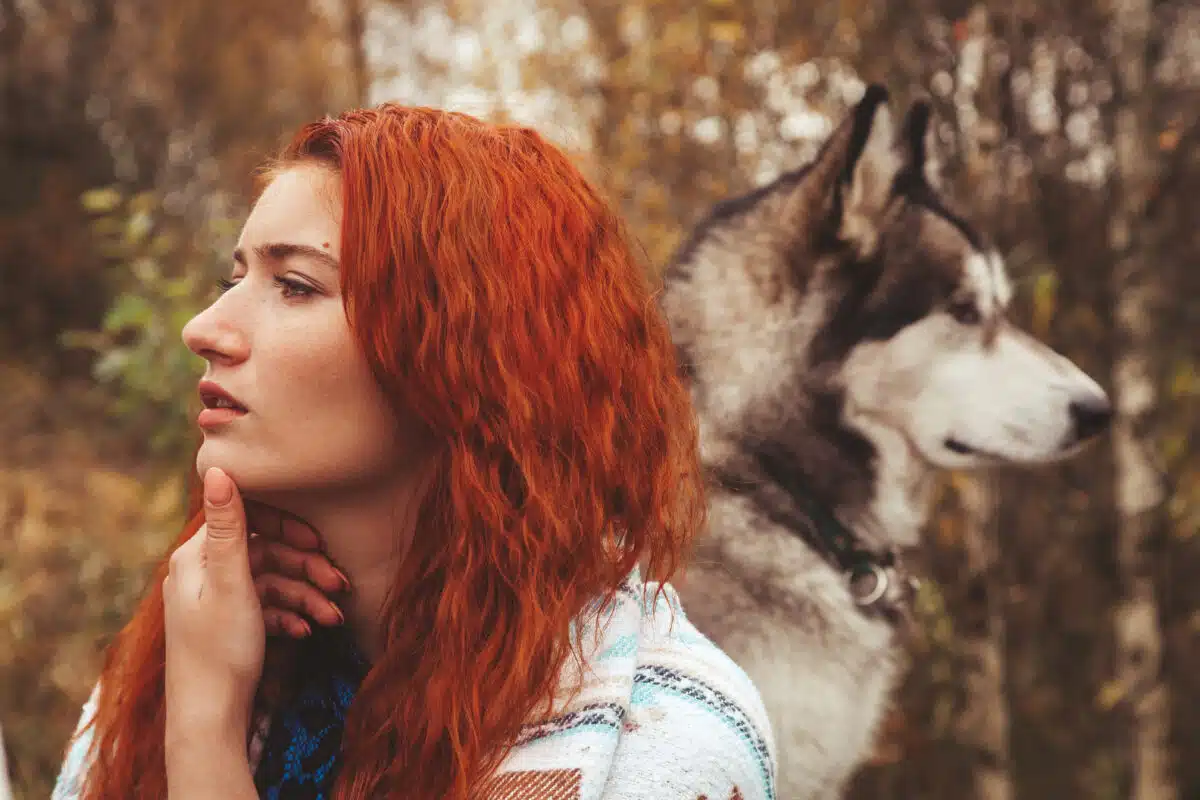
“The Wolf And The Shepherds” by Jean de La Fontaine
A Wolf, replete
With humanity sweet,
(A trait not much suspected,)
On his cruel deeds,
The fruit of his needs,
Profoundly thus reflected.
‘I’m hated,’ said he,
‘As joint enemy,
By hunters, dogs, and clowns.
They swear I shall die,
And their hue and cry
The very thunder drowns.
‘My brethren have fled,
With price on the head,
From England’s merry land.
King Edgar came out,
And put them to rout,
With many a deadly band.
‘And there’s not a squire
But blows up the fire
By hostile proclamation;
Nor a human brat,
Dares cry, but that
Its mother mocks my nation.
‘And all for what?
For a sheep with the rot,
Or scabby, mangy ass,
Or some snarling cur,
With less meat than fur,
On which I’ve broken fast!
‘Well, henceforth I’ll strive
That nothing alive
Shall die to quench my thirst;
No lambkin shall fall,
Nor puppy, at all,
To glut my maw accurst.
With grass I’ll appease,
Or browse on the trees,
Or die of famine first.
‘What of carcass warm?
Is it worth the storm
Of universal hate?’
As he spoke these words,
The lords of the herds,
All seated at their bait,
He saw; and observed
The meat which was served
Was nought but roasted lamb!
‘O! O!’ said the beast,
‘Repent of my feast –
All butcher as I am –
On these vermin mean,
Whose guardians e’en
Eat at a rate quadruple! –
Themselves and their dogs,
As greedy as hogs,
And I, a wolf, to scruple!’
‘Look out for your wool
I’ll not be a fool,
The very pet I’ll eat;
The lamb the best-looking,
Without any cooking,
I’ll strangle from the teat;
And swallow the dam,
As well as the lamb,
And stop her foolish bleat.
Old Hornie, too, – rot him, –
The sire that begot him
Shall be among my meat!’
Well-reasoning beast!
Were we sent to feast
On creatures wild and tame?
And shall we reduce
The beasts to the use
Of vegetable game?
Shall animals not
Have flesh-hook or pot,
As in the age of gold?
And we claim the right,
In the pride of our might,
Themselves to have and hold?
O shepherds, that keep
Your folds full of sheep,
The wolf was only wrong,
Because, so to speak,
His jaws were too weak
To break your palings strong.
“The Wolf And The Dog.” by Jean de La Fontaine
A prowling wolf, whose shaggy skin
(So strict the watch of dogs had been)
Hid little but his bones,
Once met a mastiff dog astray.
A prouder, fatter, sleeker Tray,
No human mortal owns.
Sir Wolf in famish’d plight,
Would fain have made a ration
Upon his fat relation;
But then he first must fight;
And well the dog seem’d able
To save from wolfish table
His carcass snug and tight.
So, then, in civil conversation
The wolf express’d his admiration
Of Tray’s fine case. Said Tray, politely,
‘Yourself, good sir, may be as sightly;
Quit but the woods, advised by me.
For all your fellows here, I see,
Are shabby wretches, lean and gaunt,
Belike to die of haggard want.
With such a pack, of course it follows,
One fights for every bit he swallows.
Come, then, with me, and share
On equal terms our princely fare.’
‘But what with you
Has one to do?’
Inquires the wolf. ‘Light work indeed,’
Replies the dog; ‘you only need
To bark a little now and then,
To chase off duns and beggar men,
To fawn on friends that come or go forth,
Your master please, and so forth;
For which you have to eat
All sorts of well-cook’d meat –
Cold pullets, pigeons, savoury messes –
Besides unnumber’d fond caresses.’
The wolf, by force of appetite,
Accepts the terms outright,
Tears glistening in his eyes.
But faring on, he spies
A gall’d spot on the mastiff’s neck.
‘What’s that?’ he cries. ‘O, nothing but a speck.’
‘A speck?’ ‘Ay, ay; ’tis not enough to pain me;
Perhaps the collar’s mark by which they chain me.’
‘Chain! chain you! What! run you not, then,
Just where you please, and when?’
‘Not always, sir; but what of that?’
‘Enough for me, to spoil your fat!
It ought to be a precious price
Which could to servile chains entice;
For me, I’ll shun them while I’ve wit.’
So ran Sir Wolf, and runneth yet.
“The Lion, The Wolf, And The Fox.” by Jean de La Fontaine
A lion, old, and impotent with gout,
Would have some cure for age found out.
Impossibilities, on all occasions,
With kings, are rank abominations.
This king, from every species, –
For each abounds in every sort, –
Call’d to his aid the leeches.
They came in throngs to court,
From doctors of the highest fee
To nostrum-quacks without degree, –
Advised, prescribed, talk’d learnedly;
But with the rest
Came not Sir Cunning Fox, M.D.
Sir Wolf the royal couch attended,
And his suspicions there express’d.
Forthwith his majesty, offended,
Resolved Sir Cunning Fox should come,
And sent to smoke him from his home.
He came, was duly usher’d in,
And, knowing where Sir Wolf had been,
Said, ‘Sire, your royal ear
Has been abused, I fear,
By rumours false and insincere;
To wit, that I’ve been self-exempt
From coming here, through sheer contempt.
But, sire, I’ve been on pilgrimage,
By vow expressly made,
Your royal health to aid,
And, on my way, met doctors sage,
In skill the wonder of the age,
Whom carefully I did consult
About that great debility
Term’d in the books senility,
Of which you fear, with reason, the result.
You lack, they say, the vital heat,
By age extreme become effete.
Drawn from a living wolf, the hide
Should warm and smoking be applied.
The secret’s good, beyond a doubt,
For nature’s weak, and wearing out.
Sir Wolf, here, won’t refuse to give
His hide to cure you, as I live.’
The king was pleased with this advice.
Flay’d, jointed, served up in a trice,
Sir Wolf first wrapp’d the monarch up,
Then furnish’d him whereon to sup.
Beware, ye courtiers, lest ye gain,
By slander’s arts, less power than pain;
For in the world where ye are living,
A pardon no one thinks of giving.
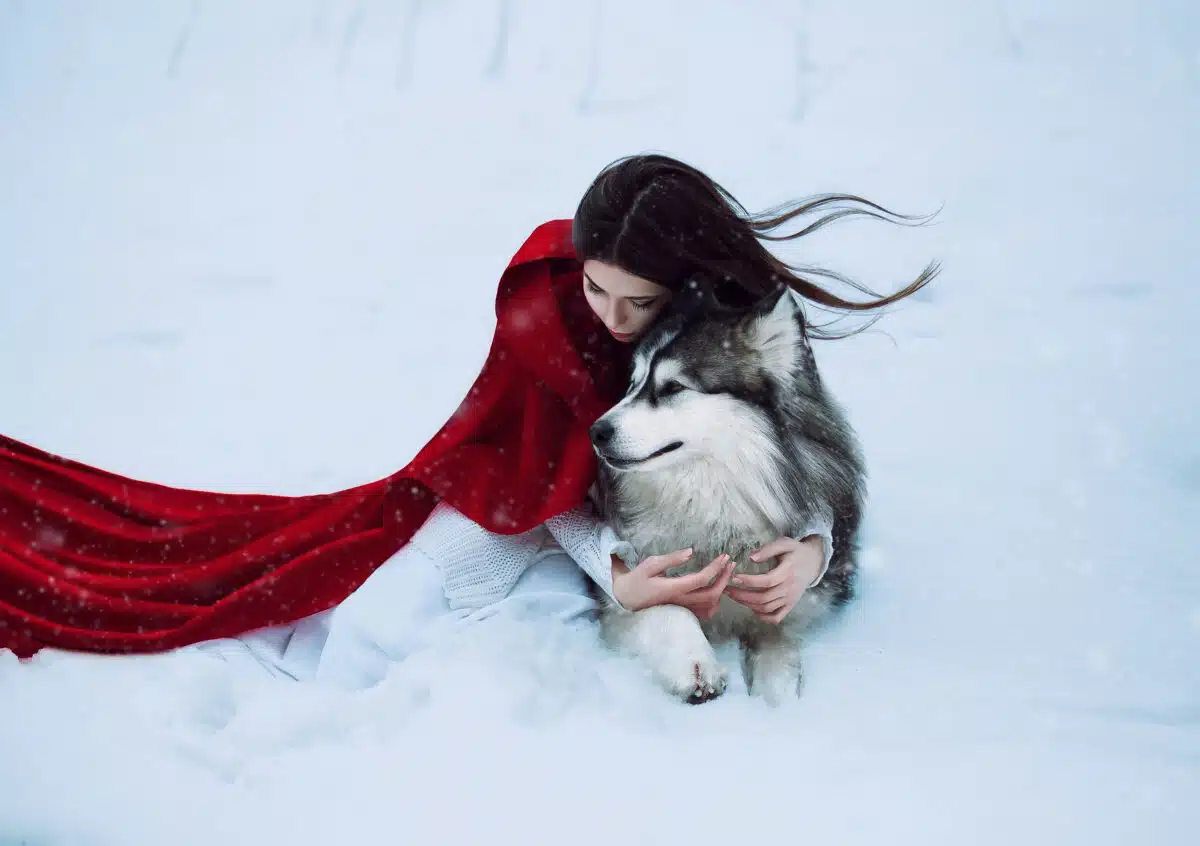
“The Wolf” by Emily Pauline Johnson
Like a grey shadow lurking in the light,
He ventures forth along the edge of night;
With silent foot he scouts the coulie’s rim
And scents the carrion awaiting him.
His savage eyeballs lurid with a flare
Seen but in unfed beasts which leave their lair
To wrangle with their fellows for a meal
Of bones ill-covered. Sets he forth to steal,
To search and snarl and forage hungrily;
A worthless prairie vagabond is he.
Luckless the settler’s heifer which astray
Falls to his fangs and violence a prey;
Useless her blatant calling when his teeth
Are fast upon her quivering flank – beneath
His fell voracity she falls and dies
With inarticulate and piteous cries,
Unheard, unheeded in the barren waste,
To be devoured with savage greed and haste.
Up the horizon once again he prowls
And far across its desolation howls;
Sneaking and satisfied his lair he gains
And leaves her bones to bleach upon the plains.
“Shepherd’s Dog And Wolf.” by John Gay
A hungry wolf had thinned the fold,
Safely he refuged on the wold;
And, as in den secure he lay,
The thefts of night regaled his day.
The shepherd’s dog, who searched the glen,
By chance found the marauder’s den.
They fought like Trojan and like Greek,
Till it fell out they both waxed weak.
“Wolf,” said the dog, “the whilst we rest on,
I fain would ask of you a question.”
“Ask on,” the wolf replied; “I’m ready.”
“Wolf,” said the dog, “with soul so steady
And limbs so strong, I wonder much
That you our lambs and ewes should touch.
There are the lion and the boar
To bathe your jaws with worthier gore;
‘Tis cowardly to raid the fold.”
“Friend,” said the wolf, “I pray thee, hold!
Nature framed me a beast of prey,
And I must eat when, where I may.
Now if your bosom burn with zeal
To help and aid the bleating-weal,
Hence to your lord and master: say
What you have said to me; or, stay,
Tell him that I snatch, now and then,
One sheep for thousands gorged by men.
I am their foe, and called a curse,
But a pretended friend is worse.”
“The Irish Wolf-Hound” by Denis Florence MacCarthy
As fly the shadows o’er the grass,
He flies with step as light and sure,
He hunts the wolf through Tostan pass,
And starts the deer by Lisanoure.
The music of the Sabbath bells,
O Con! has not a sweeter sound
Than when along the valley swells
The cry of John Mac Donnell’s hound.
His stature tall, his body long,
His back like night, his breast like snow,
His fore-leg pillar-like and strong,
His hind-leg like a bended bow;
Rough curling hair, head long and thin,
His ear a leaf so small and round;
Not Bran, the favorite dog of Fin,
Could rival John Mac Donnell’s hound.
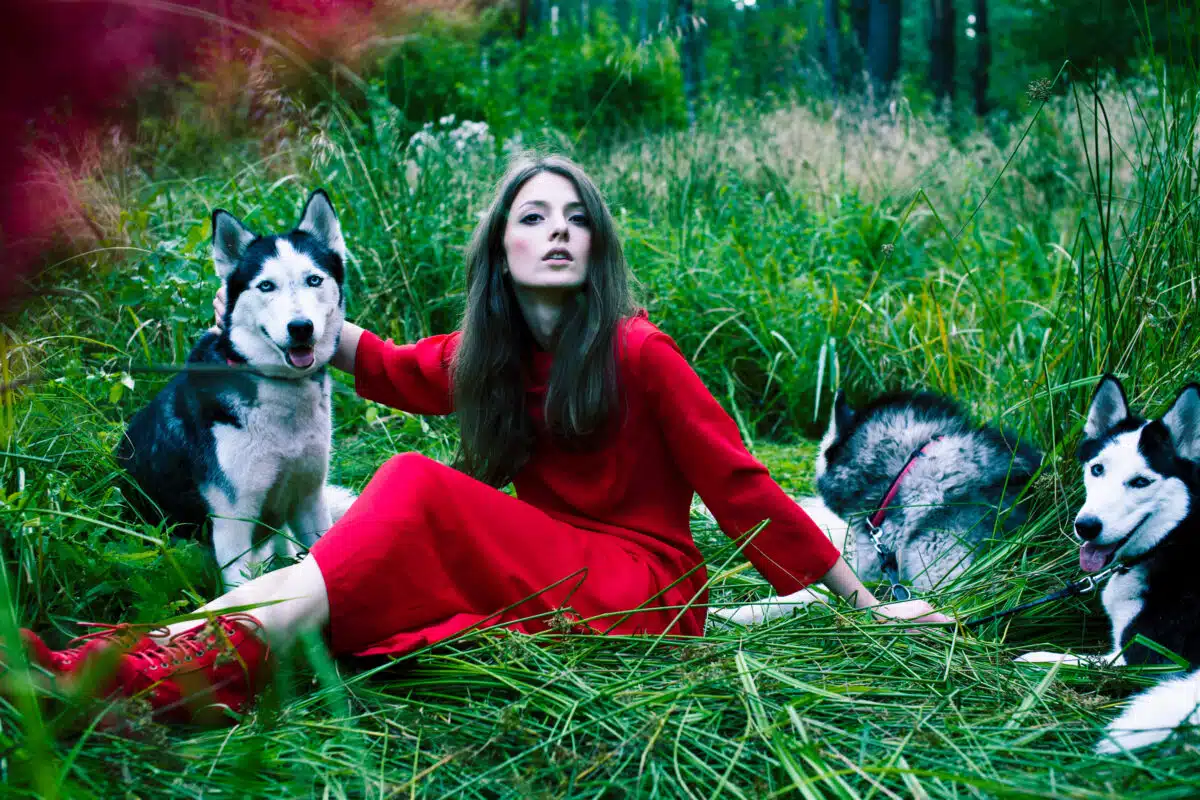
“The Wolf, The Mother, And Her Child.” by Jean de La Fontaine
This wolf another brings to mind,
Who found dame Fortune more unkind,
In that the greedy, pirate sinner,
Was balk’d of life as well as dinner.
As saith our tale, a villager
Dwelt in a by, unguarded place;
There, hungry, watch’d our pillager
For luck and chance to mend his case.
For there his thievish eyes had seen
All sorts of game go out and in –
Nice sucking calves, and lambs and sheep;
And turkeys by the regiment,
With steps so proud, and necks so bent,
They’d make a daintier glutton weep.
The thief at length began to tire
Of being gnaw’d by vain desire.
Just then a child set up a cry:
‘Be still,’ the mother said, ‘or I
Will throw you to the wolf, you brat!’
‘Ha, ha!’ thought he, ‘what talk is that!
The gods be thank’d for luck so good!’
And ready at the door he stood,
When soothingly the mother said,
‘Now cry no more, my little dear;
That naughty wolf, if he comes here,
Your dear papa shall kill him dead.’
‘Humph!’ cried the veteran mutton-eater.
‘Now this, now that! Now hot, now cool!
Is this the way they change their metre?
And do they take me for a fool?
Some day, a nutting in the wood,
That young one yet shall be my food.’
But little time has he to dote
On such a feast; the dogs rush out
And seize the caitiff by the throat;
And country ditchers, thick and stout,
With rustic spears and forks of iron,
The hapless animal environ.
‘What brought you here, old head?’ cried one.
He told it all, as I have done.
‘Why, bless my soul!’ the frantic mother said, –
‘You, villain, eat my little son!
And did I nurse the darling boy,
Your fiendish appetite to cloy?’
With that they knock’d him on the head.
His feet and scalp they bore to town,
To grace the seigneur’s hall,
Where, pinn’d against the wall,
This verse completed his renown: –
“Ye honest wolves, believe not all
That mothers say, when children squall!”
“The Wolf And The Stork.” by Jean de La Fontaine
The wolves are prone to play the glutton.
One, at a certain feast, ’tis said,
So stuff’d himself with lamb and mutton,
He seem’d but little short of dead.
Deep in his throat a bone stuck fast.
Well for this wolf, who could not speak,
That soon a stork quite near him pass’d.
By signs invited, with her beak
The bone she drew
With slight ado,
And for this skilful surgery
Demanded, modestly, her fee.
‘Your fee!’ replied the wolf,
In accents rather gruff;
‘And is it not enough
Your neck is safe from such a gulf?
Go, for a wretch ingrate,
Nor tempt again your fate!’
“The Wolf And The Lamb.” by Jean de La Fontaine
That innocence is not a shield,
A story teaches, not the longest.
The strongest reasons always yield
To reasons of the strongest.
A lamb her thirst was slaking,
Once, at a mountain rill.
A hungry wolf was taking
His hunt for sheep to kill,
When, spying on the streamlet’s brink
This sheep of tender age,
He howl’d in tones of rage,
‘How dare you roil my drink?
Your impudence I shall chastise!’
‘Let not your majesty,’ the lamb replies,
‘Decide in haste or passion!
For sure ’tis difficult to think
In what respect or fashion
My drinking here could roil your drink,
Since on the stream your majesty now faces
I’m lower down, full twenty paces.’
‘You roil it,’ said the wolf; ‘and, more, I know
You cursed and slander’d me a year ago.’
‘O no! how could I such a thing have done!
A lamb that has not seen a year,
A suckling of its mother dear?’
‘Your brother then.’ ‘But brother I have none.’
‘Well, well, what’s all the same,
‘Twas some one of your name.
Sheep, men, and dogs of every nation,
Are wont to stab my reputation,
As I have truly heard.’
Without another word,
He made his vengeance good –
Bore off the lambkin to the wood,
And there, without a jury,
Judged, slew, and ate her in his fury.
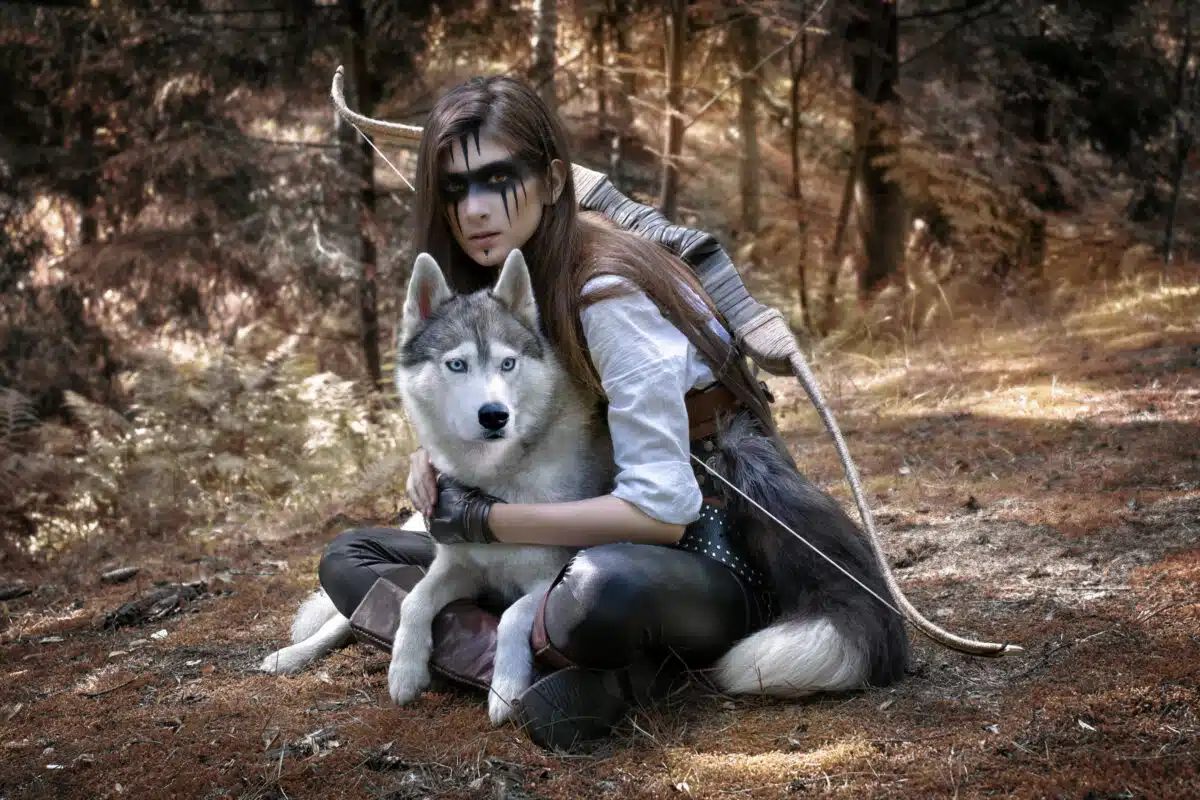
“The Wolf And The Hunter.” by Jean de La Fontaine
Thou lust of gain, – foul fiend, whose evil eyes
Regard as nought the blessings of the skies,
Must I for ever battle thee in vain?
How long demandest thou to gain
The meaning of my lessons plain?
Will constant getting never cloy?
Will man ne’er slacken to enjoy?
Haste, friend; thou hast not long to live:
Let me the precious word repeat,
And listen to it, I entreat;
A richer lesson none can give –
The sovereign antidote for sorrow –
ENJOY! – ‘I will.’ – But when? – ‘To-morrow. – ‘
Ah! death may take you on the way,
Why not enjoy, I ask, to-day?
Lest envious fate your hopes ingulf,
As once it served the hunter and the wolf.
The former, with his fatal bow,
A noble deer had laid full low:
A fawn approach’d, and quickly lay
Companion of the dead,
For side by side they bled.
Could one have wished a richer prey?
Such luck had been enough to sate
A hunter wise and moderate.
Meantime a boar, as big as e’er was taken,
Our archer tempted, proud, and fond of bacon.
Another candidate for Styx,
Struck by his arrow, foams and kicks.
But strangely do the shears of Fate
To cut his cable hesitate.
Alive, yet dying, there he lies,
A glorious and a dangerous prize.
And was not this enough? Not quite,
To fill a conqueror’s appetite;
For, ere the boar was dead, he spied
A partridge by a furrow’s side –
A trifle to his other game.
Once more his bow he drew;
The desperate boar upon him came,
And in his dying vengeance slew:
The partridge thank’d him as she flew.
Thus much is to the covetous address’d;
The miserly shall have the rest.
A wolf, in passing, saw that woeful sight.
‘O Fortune,’ cried the savage, with delight,
‘A fane to thee I’ll build outright!
‘Four carcasses! how rich! But spare –
‘I’ll make them last – such luck is rare,’
(The miser’s everlasting plea.)
‘They’ll last a month for – let me see –
One, two, three, four – the weeks are four
If I can count – and some days more.
Well, two days hence
And I’ll commence.
Meantime, the string upon this bow
I’ll stint myself to eat;
For by its mutton-smell I know
‘Tis made of entrails sweet.’
His entrails rued the fatal weapon,
Which, while he heedlessly did step on,
The arrow pierced his bowels deep,
And laid him lifeless on the heap.
Hark, stingy souls! insatiate leeches!
Our text this solemn duty teaches, –
Enjoy the present; do not wait
To share the wolf’s or hunter’s fate.
